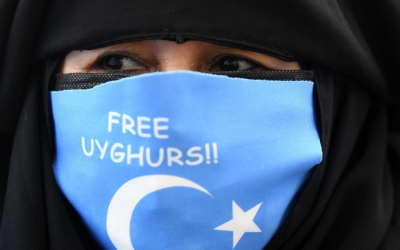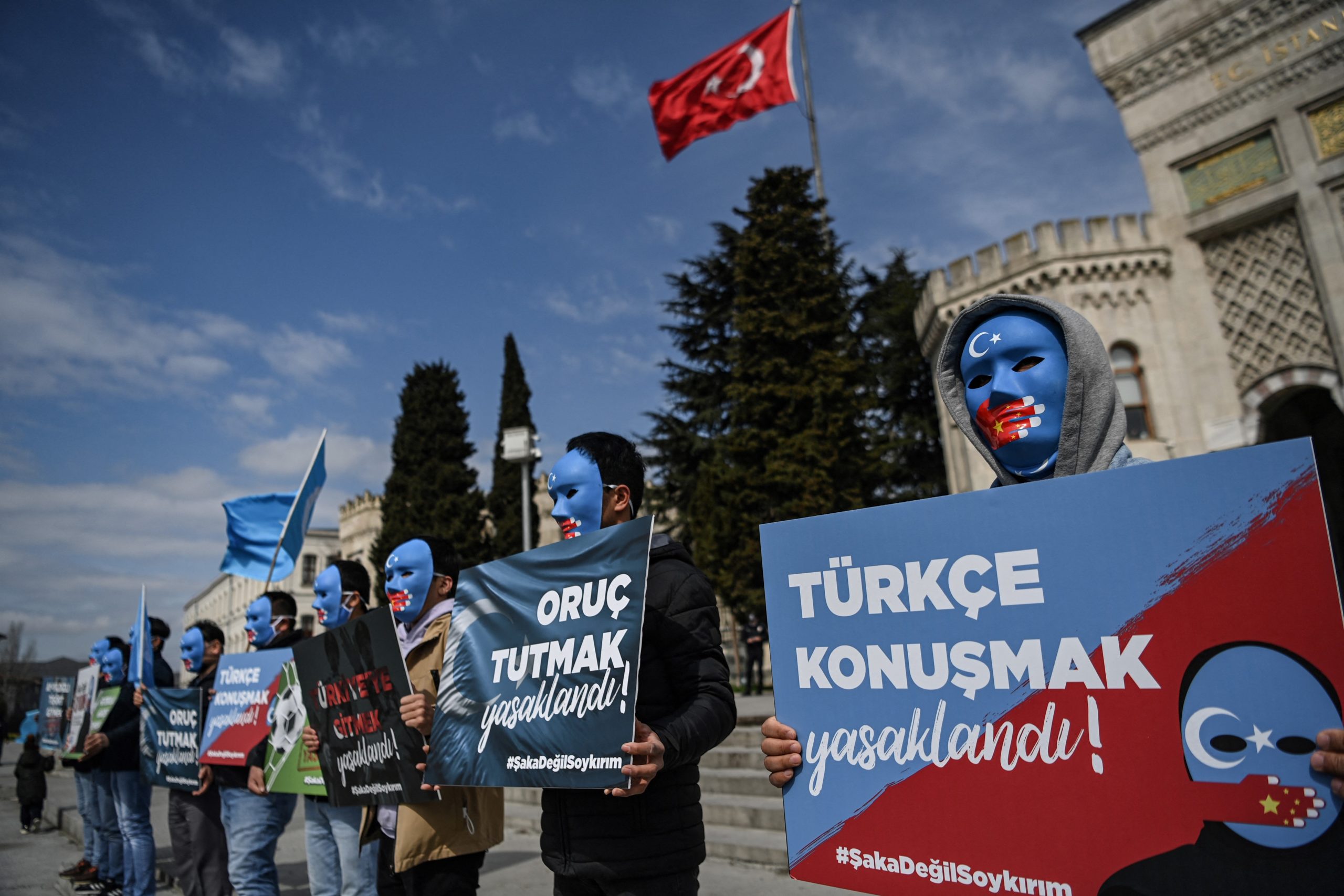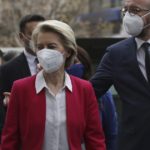A leading Uighur activist in Turkey has condemned China’s “humiliating” interference in his host country’s domestic affairs as a spat continues to roil between the two countries over comments made on the minority’s persecution.
On Tuesday, Turkey summoned China’s ambassador after his office denounced tweets by opposition Iyi Party leader Meral Aksener and Ankara mayor Mansur Yavas commemorating a Uighur uprising in Xinjiang province that was repressed by China in 1990.
“China is opposed with determination to any challenge by any individual or power to its sovereignty and territorial integrity,” the Chinese embassy tweeted, tagging the two politician’s accounts.
‘China is becoming involved in Turkey’s domestic affairs right now which was never seen before in Turkey’s political history and that’s very humiliating’
– Seyit Tumturk, East Turkestan National Assembly
In response, the Turkish foreign ministry conveyed Ankara’s “unease” over the embassy’s tweet.
Seyit Tumturk, president of the Uighur rights group East Turkestan National Assembly, told Middle East Eye the incident was indicative of an unhealthy relationship building between the two countries.
Citing his own detention in his home by Turkish police during pro-Uighur demonstrations last month, Tumturk said it was becoming increasingly difficult to criticise China.
“Turkey has tremendous problems with the western democracies right now and I think Turkey’s foreign policy is to try and create a new relationship with China and Russia. China knows that very well and they are taking advantage of that right now,” he said.
A continuing economic and diplomatic crisis in Turkey meant the government was keen to build on relations with China, but Tumturk said this was creating “a lot of problems” for Uighurs there who were becoming “unable to speak up and criticise China freely”.
“China is becoming involved in Turkey’s domestic affairs right now, which was never seen before in Turkey’s political history, and that’s very humiliating,” he said.
1990 massacre
The issue of Uighur persecution in China has long been an issue for Turkish nationalists, as the majority-Muslim minority is ethnically and cultural Turkic, and speaks a variation of the same language.
The region of China inhabited by Uighurs is referred to by pan-Turkic nationalists as East Turkestan.
On 5 April 1990, hundreds of Uighurs marched in Xinjiang province to protest about state persecution. The demonstration was heavily repressed by the security services, who killed dozens.
Referencing the date in her tweet, Aksener said Turkey would “not remain silent about their persecution and martyrdom” while Yavas said “we still feel the pain of the massacre”.
Following the backlash from the Chinese embassy, Aksener’s IYI Party issued a tweet showing a popular meme of Batman slapping someone (implied to be the Chinese embassy) with Aksener’s face on the superhero, while tweeting “Stop talking nonsense, you first stop the genocide against the Uighurs”.
Tumturk said he was “very glad” to see action from Turkish leaders over the plight of the Uighurs.
“The amount of leaders who can criticise China right now is few, but the Uighur people appreciate those kinds of action taken against China,” he said.
On Wednesday, Ankara municipality began excavation works outside the Chinese embassy, part of a citywide project to investigate water fraud.
However, the move has been interpreted by many as an attempt by Yavas to further antagonise the Chinese embassy.
Unease over Turkey-China ties
China has repeatedly denied that it is carrying out abuses of Uighurs, despite a 2018 Human Rights Watch report that detailed the “mass arbitrary detention, torture, forced political indoctrination, and mass surveillance of Xinjiang’s Muslims”.
Last month, hundreds of Uighur and Turkish activists gathered in Istanbul and Ankara to protest the visit of Chinese Foreign Minister Wang Yi, anxious about an extradition treaty with Beijing that is being considered by the Turkish parliament.
Though a number of politicians and campaigners attended a demonstration outside the embassy in Ankara, Tumturk was prevented from physically attending due to what the state media outlet Anadolu Agency called “a possible Covid-19 infection”.
However, he said that the Covid-19 infection was an “excuse”, citing negative tests and the timing of the ban, which came shortly after he called for protests on social media.
Police came to Tumturk’s house and prevented him from leaving, which he said was an attempt to “cut off” his voice, because the government “don’t want him to speak up and inform the Turkish people what’s going on in East Turkestan right now”.

Yi’s meeting with President Recep Tayyip Erdogan in Ankara came as Turkey negotiated new deliveries of Chinese firm Sinovac’s Covid-19 vaccine.
Turkey has seen a spike in coronavirus infections in recent weeks, following the loosening of restrictions on 1 March, and Erdogan’s government has been keen to push an innoculation drive in the country.
However, the 50,000-strong Uighur community in Turkey has raised fears that new shipments of the Chinese vaccine could end up being dependent on Turkey ratifying an extradition treaty approved in Beijing last year.
Both countries officially deny any such link.
Tumturk said he wanted to see the Turkish parliament follow measures implemented in other countries to brand the ongoing persecution of Uighurs a genocide.
“That’s the action we’re asking from our brothers – because we consider the Turkish government and Turkish people our brothers,” he said.
“Our blood comes from them… but we don’t see as much support as the other countries.”
Alex MacDonald
Source: ME Eyes



